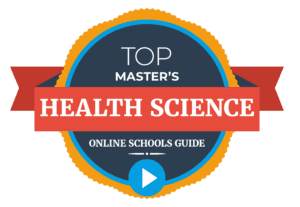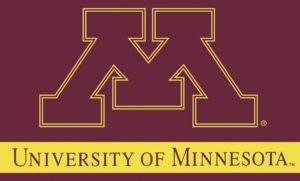
The top Health Science master’s degree programs prepare students for careers in various health care and related roles. So, you made the decision to continue on to graduate school and decided on a master’s degree in health science.
Considering a career path in the healthcare industry will provide many promising career opportunities and open the doors to promotions and higher salaries, especially for health professionals already in the field. The Masters of Science in Health Science delivers the knowledge and skills needed to obtain advanced-level positions such as nurse practitioners, laboratory analysts, and radiology technicians.
How We Ranked the Best Online Master’s in Health Science
The editors at Online Schools Guide found schools offering master’s degrees in Health Science that are online or hybrid. Then, based on reputation, cost, and future salary, we ranked the online Forensic Health master’s degree programs.
Below are the top ten health science master’s degree programs. The MSMS degree programs listed below will provide all the information that any health professional will need when determining which online graduate school to attend.
1. University of Texas Rio Grande Valley
| Degree: Masters in Health Science |

The online Masters in Health Science at the University of Texas in Rio Grande Valley offers a thirty-six credit hour program specializing in nutrition.
The curriculum will focus on the evolution of HMIS and its basic components and functions, technology infrastructure for healthcare organizations, and the healthcare concepts such as HIPPA and DICOM. This program will also touch on strategic planning for healthcare organizations and agencies, including project management, information issues on security, and the HMIS professional’s role in the healthcare industry.
Graduates can finish the program within twelve months and courses are approximately seven weeks in length. The concentration in nutrition will introduce courses related to the prevention of obesity, healthy lifestyle changes, and also maintaining wellness. In addition, the MSHS Nutrition program allows the graduate to learn the skills and knowledge needed to move up into a management position in the field of nutrition. This degree is the only accelerated online MSHS Nutrition program in Texas. However, the program does not qualify students for the Registered Dietitian exam.
Program Highlights: 36 credits, finish in one year, accelerated program.
2. Northern Kentucky University

The Northern Kentucky University’s Master of Science in Health Science program provides graduates with an interdisciplinary curriculum available fully online.
The thirty-five credit hour degree will guide graduates in developing and implementing health-related programs through community outreach. Additionally, it explores issues in healthcare, including policies and economic factors, and finds appropriate solutions to the present condition of the healthcare system. Admission into the MSHS program requires graduates to have a 3.0 GPA or higher, provide a resume, and also present a letter of Intent.
The total program includes eleven courses and can be completed in as little as twenty-four months. Each course is seven weeks long. NKU holds several accreditations from top associations such as the CCNE, AACSB, and CAEP. The University holds several rankings, such as the Best for Vets Colleges among four-year schools by Military Times and ranks at #23 on the Best Online Graduate Nursing Programs by U.S. News & World Report.
Program Highlights: 35 credits, 11 courses, highly ranked, top accreditations.
3. Florida Atlantic University

The Executive Master of Health Administration at Florida Atlantic University offers graduates a thirty-credit program curriculum available both online and on-campus.
This program is only fifteen months to completion and provides start dates in the fall, spring, and summer. Courses will cover both business disciplines and health administration concepts. Core courses of the Executive MHA program includes global issues in healthcare delivery, health policies and law, and organizational behavior in healthcare.
Students will also be able to earn a lean six-sigma green belt certification upon graduation. The courses are instructed by a world-class faculty and provide convenient scheduling of classes. The program offers many networking opportunities with experienced healthcare industry professionals. The Executive MHA degree is fully accredited by the Association to Advance Collegiate Schools of Business (AACSB) and the Southern Association of Colleges and Schools (SACS). The program is regionally accredited.
Program Highlights: 30 credits, 15 month program, many top rankings and accreditations.
4. University of South Florida

University of South Florida’s MS in Medical Sciences offers graduates a thirty-two credit degree with a concentration in Health Sciences.
The curriculum is 100% online and provides courses of health studies, such as basic classes of medical anatomy, ethics in health science, medical physiology and pharmacology, and medical genetics. The complete curriculum is four semesters long and prepares graduates for future higher education programs or medical schools. Graduates must earn a GPA of 3.0 or better to enter into the MS in medical science degree.
The MSMS program offers three other concentrations to help graduates to make the best choice for their masters degree at University of South Florida. USF is a regionally accredited university and ranks at #1 for the health science concentration by Best Colleges and #14 in student success of public research and doctoral universities.
Program Highlights: 32 credits, 100% online, complete in four semesters, concentrations available.
5. Walden University

The Master of Science in Health Education and Promotion at Walden University offers graduate students an integrated program that is available fully online.
This online masters in health science degree will prepare graduates for a rewarding career as a certified health education specialist (CHES). The complete program is fifty-credit hours and students will learn how to create and implement new programs to educate the public and evaluate current communications and prevention programs already in place.
Walden University does offer students five specializations within the MSHEP program. Each specialization is sixty credit hours and focuses on a specific goal to achieve. The curriculum provides job-ready skills and fuels your passion and dedication to improve the health of the lives of the community you live in. Graduates find employment in careers such as health educator counselor, health coach, wellness coach, or community health outreach coordinator. Additionally, the MSHEP program is accredited by the Higher Learning Commission.
Program Highlights: 50-60 credit hours, up to 25 transfer credits accepted, specializations offered, job-ready skills taught, top rankings.
6. Utah State University

The online MPH in Health Education and Promotion program at Utah State University provides a forty-five-credit hour program. This degree prepares students for the high demand in the health professional career.
Courses in the program inspire students to become leaders in public health, teach healthy living to their patients, and introduce health behavior management. The program also equips students with the foundational competencies necessary for public health training and a focus on population health.
In addition, the MPH-HEP degree offers graduates the skills needed to impact the health industry through every effective decision. There are two start dates to enter the program each year with low tuition rates.
Program Highlights: 2 start dates, 15 industry relevant courses, 100% online, 45 credits, low tuition cost
7. University of Minnesota – Twin Cities

The Masters in Health Care Administration at University of Minnesota offers an online program that starts in the fall semester.
This program length is between forty-two and sixty credits, depending on if any transfer credits were applied. Graduates with no or little experience in the healthcare industry are a good fit for this program. The MHA curriculum includes courses in healthcare management ethics, healthcare HRM, strategic planning in healthcare, and advanced problem-solving within the healthcare field.
The University of Minnesota’s faculty members provide exceptional instruction to students, while preparing them to become educational leaders of the healthcare industry. Graduates must keep a 3.0 GPA average to continue in the MHA program with good standing. The MHA program at UM ranks #3 nationwide by U.S. News & World Report and provides several accreditations, including an accreditation by the CAHME.
Program Highlights: 42-60 credits, transfer credits accepted, top rankings and accreditations.
8. Dallas Baptist University
| Degree: MBA in Health Care |

Dallas Baptist University’s MBA in Health Care program is a thirty-six credit curriculum which provides dual degree options in a range of concentrations.
The courses include healthcare policy, healthcare marketing, managed care, and long-term care, including a capstone final course that provides hands-on experience in areas such as administration, clinical practice, or education, and consultation. There are a possibility of fifteen concentrations at DBU, ranging from accounting, marketing, cybersecurity, IT innovation, and project engineering. Students that choose a dual degree, the credit minimum to graduate is forty-eight credits. Dallas Baptist provides advanced certifications as well.
The university’s community is based on strong Biblical principles and inspires passion to all undergraduates and graduate students while empowering life long dreams. Dallas Baptist University has accreditation from the Southern Association of Colleges and Schools Commission on Colleges (SACSCOC).
Program Highlights: 36 credits, dual degree options, many concentrations, top accreditations.
9. Kent State University
| Degree: MS in Health Informatics |

Kent State University’s MS in Health Informatics program is a fully online degree that prepares students for the top healthcare career opportunities in the nation. Graduates of the program find employment in management, consultation, or executive positions within the healthcare industry.
The science behind health informatics is to evaluate, implement, and utilize the technology when managing the right information through the patient care delivery process. The health informatics program provides a combination of three disciplines; 1) the information systems component, such as analysis and design, 2) the study of structure and function of informatics, and 3) IT components on networking, security, and programming.
The MS-HI program provides aspects of computer science, clinical sciences, social influences, and business practices. To apply for the masters in health science program, students must have earned their BS degree in a similar major, hold a 3.0 GPA average, provide a resume, and three letters of recommendation.
Program Highlights: 36 credits, fully online, 12 core courses, scholarship opportunities, affordable.
10. Boston University

Boston University’s MS in Health Professions Education program is for health professionals currently working in the field. And also for graduates of the BS in health science or related fields.
The education and training provided in the masters program will instruct health professional educators in developing advanced skills of curriculum development, teaching methods, research, and evaluation and assessment of health science education. The master’s degree program in Health Professions Education is presented by both Graduate Medical Sciences (GMS) and the School of Education (SED). The MS-HPE courses are available fully online and include thirty-two credits. Students do have the option to take the course part-time or also full-time.
There are two tracks offered for graduates. They can choose the MS program or a certificate of completion. However, the certification is only sixteen credits. Students can complete each option within one year. Some work experience in health education is required for the MS program and Certification. The tuition cost for attending is competitive to most state universities; However, BU does offer some financial assistance to both online and on-campus graduates.
Program Highlights: 32 credits, fully online, financial assistance, one year program, certificate available.

What Can You Do With A Master’s Degree In Health Sciences?
A health sciences master’s degree can be a path to many different careers. For those interested in a Master’s degree in Health Science, attending college is perhaps one of the essential steps in our academic careers. With college comes opportunities for networking, resume building, and working towards the job of your choice. Many find that the experience is gratifying if dealt with correctly. What exactly does this mean?
It is extremely common for new students, especially first-generation to find themselves confused and frustrated with choosing a major specific to their dream jobs. Without proper guidance, students may choose the wrong major and spend more time and money in college than needed. The lack of a clear path can lead to a negative college experience.
What Degree Is A MHS?
One popular major that is currently in demand is Health Sciences. An MHS is a Master’s in Health Science degree. Health Science is an umbrella term for a wide range of medical jobs. And, a degree in Health Sciences is a sure way to enter the medical field.
What is the Health Sciences field?
Health Sciences is one branch of applied sciences, dealing primarily with animal and human health. According to recent statistics, this major has been one of the most selected degree pathways in the United States. There are nearly fifty different fields in which an individual can choose to specialize, thus being a top choice for anyone interested in the medical field. In your university, the college supporting this major is most likely to be the College of Sciences.
Health Sciences is generally split into two parts. The first is acquiring the necessary knowledge, which involves attending lectures, labs, and getting involved with research. The second step is the application of that knowledge. This step includes diagnosing patients, improving the health of others, understanding how bodies function, and more.
During the second half of your academics, you may find yourself out of the classroom. You will shadow, research, and internship opportunities because all hands-on experience is vital to success in the medical field.
The Career Options with an Online Master in Health Science Degree
The MHS degree programs are among the best options for health professionals and also health educators working in the healthcare industry or public health field. There are several specializations within these programs so students can focus on a specific emphasis or career path.
Every health science graduate program may introduce new or different concepts of health science education than others; for instance, some programs are research-oriented or designed for health professionals who plan to move up into mid or advanced-level career positions. However, most programs will provide foundational courses in health administration, strategies in healthcare systems, and common trends or issues in the healthcare industry.
What Are Some Masters in Health Sciences Jobs?
The career choices for a graduate of a Health Science Master’s Degree online program are endless. Below is a broad list of career opportunities for health professional graduates. The salaries of each profession will vary, due to work experience, specializations, and personal commitment to the individual’s health science career goal. For example, Epidemiologists can earn approximately $70,000 annually, according to the BLS.
- Epidemiologist
- Clinical research coordinator
- Data scientist
- Clinical Research assistant
- Client services analyst
- Public health coordinator
- Scientific editor
- Statistical analyst
- Health services researcher
- Safety, health, and environment specialist
- Health Program manager
- Mental/behavioral health program coordinator
What Is A Master’s In Health Science Curriculum and Typical Coursework?
While most of the health science coursework may vary, these are only a few of the generalized courses an undergrad may take. The difficulty depends on the student and also their study habits. Success in this major requires a strong foundation in both mathematics and the sciences. In addition, you must be talented in analytical and problem-solving thinking to earn a Health Sciences Master’s Degree.
Students with this major dedicate several hours per week solely to studying in preparation for exams, quizzes, and general class work. Therefore, you should prepare for challenging coursework and long hours of studying if choosing this major. In the end, however, the experience will be worth its time and effort.
Below are some of the typical classes a Health Sciences undergrad might take.
- Calculus
- Anatomy and Physiology
- Psychology
- Chemistry (Organic and General)
- Biology
- Physics
- Pharmacology
- Health Care and Administration
- Preventative Healthcare
- Pathophysiology
Obtaining a B.S in Health Sciences prepares students for a wide variety of positions. Graduates can work in hospitals, research laboratories, clinics, and also rehabilitation facilities. So, this master’s degree can infinitely expand your options.

How Long Does it Take to Earn a Master’s in Health Sciences?
This is a question both prospective college students and post-graduate medical students may have. It typically takes a student two years after completing and attaining a bachelor’s degree to receive an M.D.
For four-year college students, this is approximately six years, assuming they follow the recommended track for the major. Following the recommended path ensures that you will graduate on time without spending more money than needed on unnecessary coursework.
How Much Can You Earn with a Master’s in Health Sciences?
While the average salary for someone with such qualifications varies per position, you can expect a higher salary with an M.D as opposed to a B.S. In addition, someone with a Master’s Degree in Health Sciences is qualified to take on higher-ranking positions such as management, leadership positions in hospitals and clinics, and significant roles in government agencies.
What Can You Do With a Master’s in Health Sciences?
Below are a few of the masters of science in health sciences careers and jobs held by Health Sciences M.D. holders.
- Healthcare Administrator
- Community Health Organizer
- Health Educator
- Pharmacist
- Biomedical Engineer
- Audiologist
- Epidemiologist
- Biostatistician
- Regulatory Affairs Specialist
Is Health Science A Good Major?
A Health Science Master’s degree is a wonderful, feel-good major for community-oriented individuals hoping to leave an impact on the lives of those around them. A few of the other advantages of this major include a high salary, better networks and connections, and also a feeling of satisfaction after each day of work. Not to mention, health care professionals are always high in demand due to the vast amount of health issues plaguing the world’s population.
Your Career in Health Sciences
If any of this sounds appealing to you, pursuing an M.D in Health Sciences may just be your best bet. Similar majors include Biology, Biomedicine, and also Chemistry.
Furthermore, an online school option is a wonderful choice, making it more convenient to work and study from the comfort of home.
Related:
- 10 Best Majors for Med School Admissions
- Top 10 Health Science Bachelor’s Degrees
- 10 Best MBA Online Schools and Programs
- What Can I Do With a Health Science Bachelor’s Degree?
- 10 Online MPH Programs
- What Can I Do With a Master’s in Public Health Degree?
- Top 10 Online Bachelor’s in Sports Management
- 10 Online Master’s in Sports Management
- Top 10 Online Certificate Programs in Management
- 10 Top Degrees In Demand with Future Growth
- What Is Health Informatics?
- 10 Top Online Master’s in Sociology
